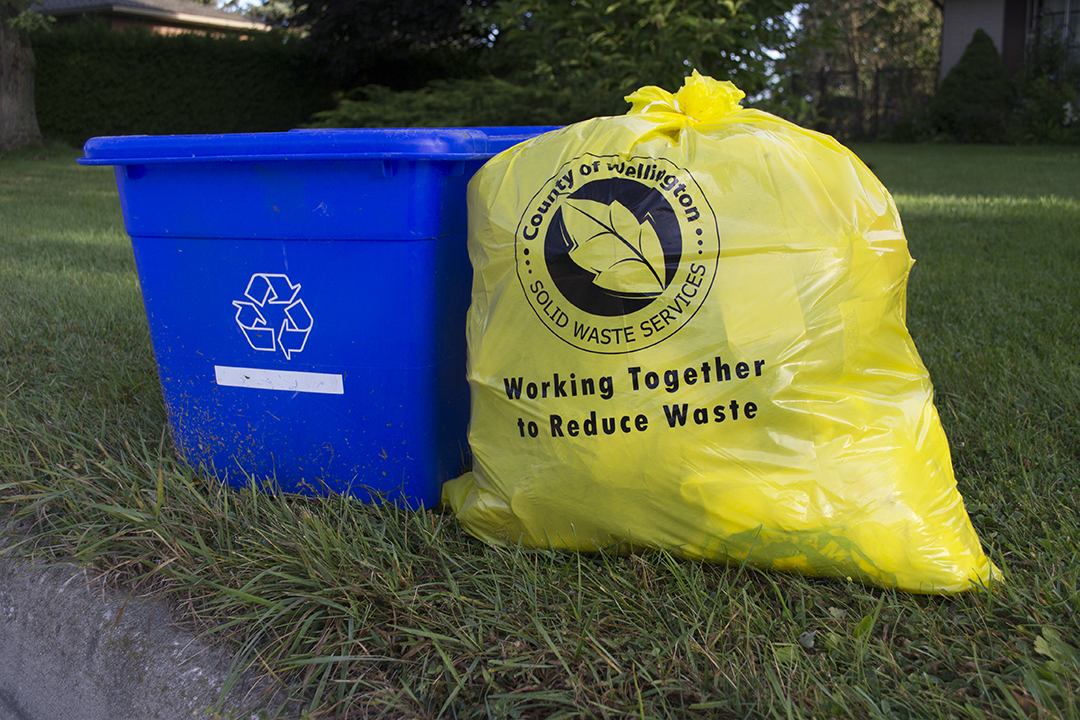GUELPH – The County of Wellington will opt out of recycling collection at the first opportunity, as the provincially-mandated switch to full producer responsibility for collection and processing continues toward a 2025 deadline.
A report from county solid waste services manager Das Soligo indicates the Ministry of Environment Conservation and Parks has released a transition schedule requiring all Ontario municipalities to transition between July 1, 2023 and December 31, 2025. Wellington County’s blue box program is scheduled to transition on July 1, 2025.
That leaves a six-month gap between July 1 and December 31, during which the county could continue providing recycling services to local communities, councillor Gregg Davidson, who chairs the SWS committee, told county councillors at the Oct. 27 meeting.
“However, it was decided there is little benefit for the county to provide services for that six months, and a number of risks. Therefore, the county decided to opt out of the responsibility for those last remaining six months, which will put it back onto the producers,” Davidson explained.
Soligo’s report notes that if 100 per cent of the costs of operating the county’s recycling program are compensated for, it is estimated the transition will result in $2 million in annual savings.
Councillor Chris White asked if the changes would have any impact on the county’s yard waste pickup program, which was introduced in the spring of 2021.
Davidson replied that the switch to producer responsibility affects only the recycling program and will not impact yard waste, green bin or garbage pickup programs, which the county operates through a contract arrangement with Waste Management.
Councillor James Seeley asked if some of the county’s savings from the switch to producer responsibility could be used to provide recycling services for local businesses.
“Once we are out of the recycling game, there’s going to be some money in the budget that was there for paying for that service,” Seeley pointed out.
“Has staff considered trying to capture the businesses, maybe in the downtowns, that the new service provider for recycling won’t be servicing? Because in my world it would be found money,” Seeley suggested.
“The business community, as you pointed out, will not be part of the producer responsibility. They’re not responsible for that sector,” replied Davidson.
“We are still in the processes of trying to figure out whether we still want to accept the Blue Box material at our transfer stations as well. So all that has to come back to the committee about what we’re going to do in the future,” Davidson added.
Councillor Andy Lennox said an Association of Municipalities of Ontario task force working on the transition, which he is part of, is considering the question of how to service businesses.
“One of the things that the task force is looking at as one of the higher priorities is around expanding what goes into recycling after this transition occurs, but also … seeing if there’s a way that we can facilitate getting the ICI (industrial, commercial and institutional) sector included in the recycling,” said Lennox.
“So it is in the works, but I think the province is preoccupied right now with the transition first and then we’ll be looking towards some little expansions and perhaps we need to lobby for expansion of what goes into the box for recycling,” he added.




